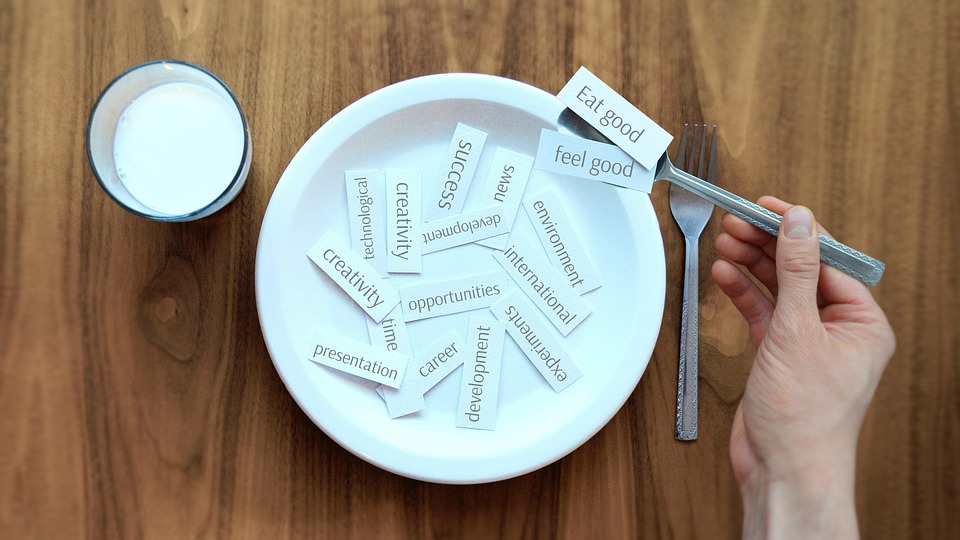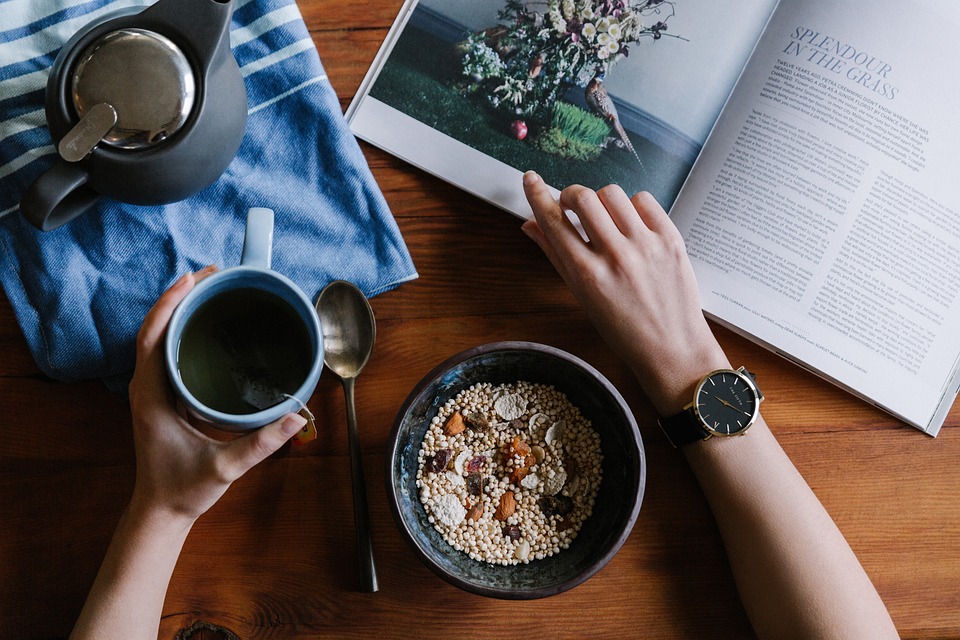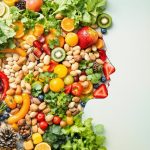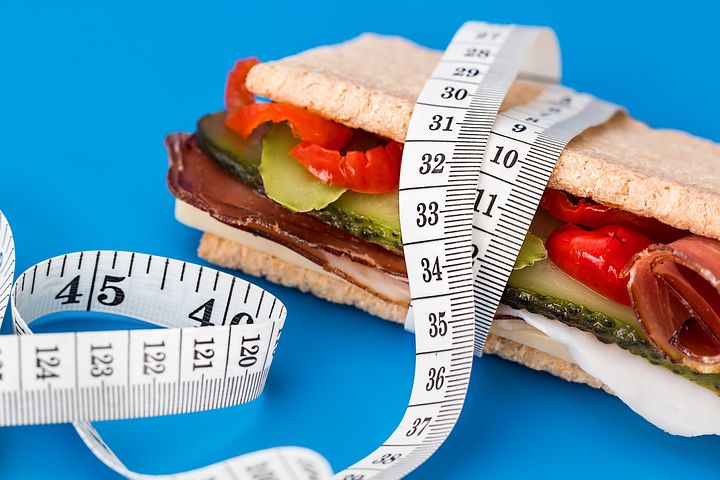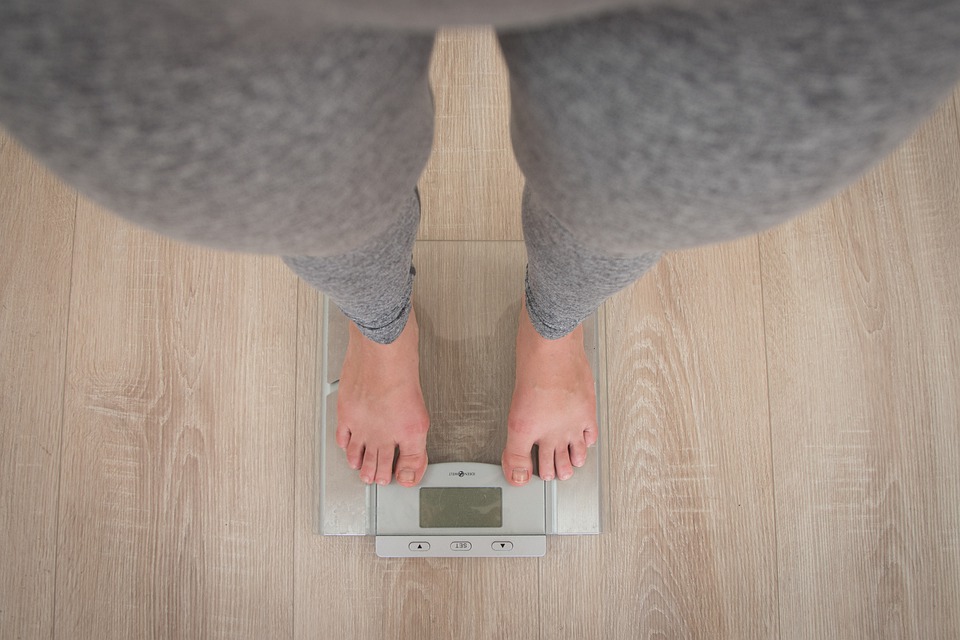
Do you find it difficult to lose weight, even when you consume a few calories? Do you have trouble with your digestion, even when following your doctor or dietitian’s suggestions? For athletes, losing weight is more complicated than examining the food they eat and how it is prepared. We need to look more closely at the relationship between the brain and the gut to understand how mindful eating can help with weight loss and improve digestion.
The brain and gut are connected through the vagus nerve. These two are best buds and they constantly send signals back and forth to each other. Similar to when your best friend is in a bad mood, when the brain is “angry” or “anxious”, the gut will follow suit.
We think that the gut-brain connection explains why athletes who have experienced numerous concussions often develop gut issues.
Just as with everything else, it takes time. Eating mindfully can help you improve in many ways, just like practicing a sport can make you better at playing it. Just as you wouldn’t expect to be good at a sport without practicing, you shouldn’t expect to be good at eating mindfully without practicing. It takes time to get good at both.
Why You Should Tune In To Your Body
Or would you rather feel satisfied, focused, and energized? Before taking a first sip or bite of food, think about how hungry you are and what you want to feel after the meal. Consider if it is worth feeling stuffed and brain-fogged, or if you would rather feel satisfied and energized.
Most athletes can tell when something is wrong with their sleep, fatigue, or energy levels. However, they are not usually good at understanding when they are hungry. Even if they notice they are very hungry before a meal, is it worth it to eat so much that they can’t breathe or fit into their pants 45 minutes later? I don’t think so. It doesn’t help performance in any way.
If you think about how you want to feel before you eat, it will help you stay on track with your health goals. When we are young, we are often told to eat a lot for performance and recovery. It’s easy to continue this into our adult years without realizing it. But if we’re not actually hungry, food won’t help.
Offer Gratitude, Really
How often do we mindlessly eat without giving any thought to what we’re doing? We can easily polish off three servings of food without even realizing it. The next time you sit down to eat, think about taking a moment to give thanks for the meal before you start. How did this food end up on your plate? Someone had to put in a lot of hard work to grow the perfect crops and prepare the meal exactly to your liking. Be grateful for what you have. Don’t take it for granted! Not only will this make you appreciate your food more, but it can also help your body to better digest the nutrients.
It’s Turtle Time
An athlete’s digestion and absorption of nutrients can be improved by eating slowly. It takes the stomach about 20 minutes to signal the brain that it’s full. So, if an athlete wants to feel full sooner, and with a smaller amount of food, they should take their time eating.
If you’re someone who tends to eat rapidly, there are a few things you can do to help yourself slow down. One option is to use your non-dominant hand, or you can set a timer next to your plate so that you’re not done with your meal until 20 minutes have passed. Some of the athletes I work with use chopsticks as a way to help them eat more slowly. Additionally, you may find it helpful to set your utensils down periodically throughout the meal and engage in conversation. This can give you a better idea of how full you’re getting, and it also allows you to savor each bite more fully and enjoy your food more. Eating slowly is a totally different experience that you’re sure to enjoy!
The Clean Plate Club is Old School
If you were told as a child to finish your plate no matter what, this is not a healthy habit to carry into adulthood. A general rule of thumb is to eat until you are 75-80% of the way full. You can always go back for more if the first round was not enough.
If you overeat, you will gain weight, your cholesterol will go up, and your blood sugar will rise. You should not waste food, but it is okay to put half your plate in the refrigerator to eat later. A better idea is to freeze the food in a glass container and reheat it for another meal during the week. This will help you keep a healthy metabolism and save money.
Keep it Consistent
One way to make sure you don’t eat more than you need to is to eat at regular intervals throughout the day. If you skip a meal, you’re likely to overeat when you finally sit down to eat. Set a timer on your phone to eat every 3-4 hours when you’re awake. This will help reduce the risk of overeating. Another way to reduce the urge to overeat is to make sure your meals and snacks include protein, healthy fats, or fiber.
Take Five
You can improve your metabolism in 60 seconds by taking 5-10 deep breaths before you start eating. Breathe in through your nose for a count of five, pause, and then breathe out through your mouth for a count of five. Repeat this until you feel calm and relaxed. It may help to keep your hand on your belly to connect with a deeper breath. Relaxing before you eat will improve digestion and decrease your chances of post-meal pain and bloating.
Eat with Intelligence
A calorie is not just a calorie. Food is medicine and it has the ability to alter gene expression.
The most powerful tool given to humans on this planet is food. You will begin to appreciate each meal in a completely new way when you start thinking this way. You may find that you taste each bite and no longer feel the need to shovel down a plate and run out the door.
Savor it Baby
You should take the time to sit back and savor every bite of food you eat. Pay attention to the textures and smells to get the full experience of the flavor. Whether it’s sour, sweet, salty, bitter, or savory, make sure to fully enjoy it!
Fool Your Metabolism with Fat-Blasting Food
You cannot lose weight by following a fad diet, despite what many people believe. This is because these diets are not based on counting calories, but rather on the types of food you eat. Everyone has different food preferences.
You don’t need to carry raw veggies around with you to control hunger. You can just eat foods that help you lose weight, and avoid foods that make you gain weight. Foods that help you lose weight include avocados, bananas, berries, yogurt, green tea, and whole grains. Foods that make you gain weight include white bread, rice, and sugary snacks.
Customize Your Social Media Feed
If you find yourself spending a lot of time on Facebook, you may be surprised to know that it could be affecting your waistline. If you have liked recipe pages or even the pages of your favorite restaurants, you are probably seeing a lot of tempting food photos every day. This can explain why you might find yourself going to the fridge more often!
It’s a good idea to see if the posts you’re looking at are impacting you negatively by paying attention to how you feel after you see them. If you find yourself feeling hungry even though you’re already full, you should stop liking or following those pages, and look for alternatives that will inspire you to go to the gym instead.
Try Intermittent Fasting
Fasting is any period of time in which you do not eat. It is part of a cycle, which means that there is a time for eating and a time for refraining from eating. When we eat, we store calories as body fat. When we don’t eat, those stored calories are used to ensure that we don’t waste away.
The average person used to eat three meals a day. If you ate breakfast at 9 am and dinner at 7 pm, you would be eating for 10 hours and fasting for 14 hours. Without maintaining a healthy diet, no one was really obese.
If we want to lose weight, we should fast for 14 to 16 hours every day.
Maintain a ‘Go-To’ Restaurant
If you work a 9 to 5 job, chances are you have little to no time to cook for yourself as much as you like to anyway. So chances are you have several take-out restaurants in case you run out of time. However, rather than making an impromptu choice, pick one that is near your home and offers nutritious choices.
If you want to make sure you’re choosing a healthy option at a restaurant, make sure the menu doesn’t have any items with the word “loaded” in them. These are likely to be unhealthy options unless you consider a salad covered in fatty dressing to be healthy.
Keep the Table Cluttered
It is beneficial to be messy when trying to lose weight, according to a study. The research found that leaving fruit peels, nut shells, and wrappers on the table can discourage overeating. These act as visual reminders that remind us of how much we have eaten and also encourage us to stop eating when we are full.
Place the empty pistachio shells next to the bowl while you snack, so you can make a neat little pile. Looking at the pile when you think you can have more nuts will help discourage you from overeating.
Reduce Sugar in Your Diet
You are not doing your health and fitness any favors by bingeing on sugary snacks and beverages. Even if your diet does not have enough carbs to make you fat, the candies and drinks you are consuming daily are adding to the visceral fat in your belly.
The sugar is hard to melt and it also makes the pancreas work harder. The pancreas produces insulin to break down sugar molecules so they can be used for energy. However, if there is too much sugar, the body cannot process it all and there is more sugar than energy.
Fat that is stored in the liver and muscles is unhealthy and contributes to weight gain. The best way to prevent this from happening is to gradually reduce the amount of sugar in your diet until you eliminate it completely. This will give your body time to adjust and you will not suffer from low blood sugar.


